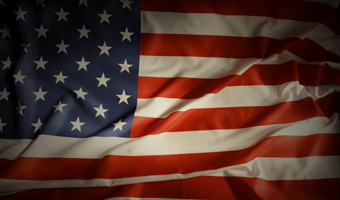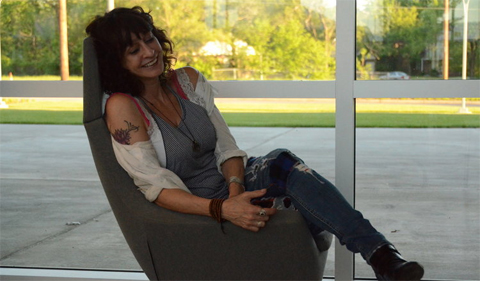On Nov. 12, the day after Veterans Day, Ohio University hosts a free panel discussion and poetry workshop on Hidden Poetry: How does poetry help people who carry the hidden wounds of war and trauma?
This innovative event provides extraordinary examples of people who have used poetry to deal with hidden disabilities such as post-traumatic stress disorder, traumatic brain injury, prosthesis and other often hidden wounds of war.
I ndividuals with hidden disabilities silently cope with physical, psychological, or spiritually wounds that aren’t obvious to others. Hidden Poetry was designed to provide a safe context for these individuals to better understand their own lives through the words of others and to offer a creative outlet for managing disability and health.
ndividuals with hidden disabilities silently cope with physical, psychological, or spiritually wounds that aren’t obvious to others. Hidden Poetry was designed to provide a safe context for these individuals to better understand their own lives through the words of others and to offer a creative outlet for managing disability and health.
Two programs on Nov. 12 focus attention on the intersection of poetry, veterans, and hidden disabilities.
Public Panel Discussion
A panel discussion on how poetry helps people who carry the hidden wounds of war and trauma is a 6 p.m. in the Baker Center Theater. Four established humanities scholars are sharing what they have learned about how poetry affects veterans and people who have experienced trauma.
Ohio University invites everyone—whether they are veterans or not—to attend this free panel discussion with questions, stories, and an interest in compelling conversation.
Refreshments will be available between sessions.
Poetry Workshop for Veterans
A veterans-only poetry workshop facilitated by Darrel Alejandro Holnes and Becca Lachman is at 8 p.m. in Baker Center 242.
Workshop participants are encouraged to RSVP at hiddenpoetry@gmail.com because space is limited. During the workshop, veterans will learn how to use poetry to better communicate about the hidden wounds they carry. The workshop also includes a discussion about bridging non-veteran and veteran culture.
Panel and Workshop Facilitators
Panelist Roger Thompson is an Associate Professor at Stony Brook University and has taught at the Virginia Military Institute for 14 years as a professor of English and Fine Arts. Thompson’s research bridges the traditional disciplinary gaps between rhetoric, literature, and writing studies. Recipient of a Harvard University fellowship for pursuing cross-disciplinary research, Thompson is currently a Senior Fellow at the Institute for Veterans and Military Families at Syracuse University, NY. Thompson is an award-winning nonfiction writer whose scholarly and nonfiction work has appeared in numerous academic and non-academic journals. The co-author of Beyond Duty: Life on the Frontline of Iraq, a bestselling Iraq War memoir, Thompson’s work has been translated into several languages and covered by major media outlets, including The New York Times, CNN, the CBC, and NPR.
Panelist Jason Hoppe is an assistant professor of English at the United States Military Academy at West Point, NY. Hoppe is the author of an award-winning article on the relationship of Emily Dickinson and Colonel Thomas Wentworth Higginson and has written widely about subjectivity and war in the poetry of Herman Melville and Gwendolyn Brooks. As the director of the West Point Writing Center, Hoppe has been able to develop a summer writing seminar that gives special attention to the therapeutic power of narrative and poetry for veterans.
Panelist and Co-Workshop Facilitator Becca Lachman is an Ohio University alum and has taught Poetry and War classes at Ohio University in recent years. An award-winning poet and writer, Lachman’s work has been featured in On Being (American Public Media blog), The Whistling Fire, and The Mennonite Center for Writing Online. Lachman’s research focuses on storytelling, the Mennonite community, gender studies, and poetry. She is the author of A Ritual to Read Together: Poems in Conversation with William Stafford, and two other collections of poetry. Lachman will help facilitate the workshop and be on the panel..
Panelist David Adams is an associate professor and honors director of English at Ohio State University at Lima. Adams is currently working on a book that examines the intersections of queer theory and disability studies. A former Fulbright fellowship recipient, Adams also has experience teaching at Cornell University. Adams’s research focuses on twentieth-century British and postcolonial literature, literary theory, and cultural studies. He is the author of Colonial Odysseys: Empire and Epic in the Modernist Novel, as well as various articles and translations.
Co-Workshop Facilitator Darrel Alejandro Holnes has an MFA in poetry from the University of Michigan. His poetry has been published in a number of journals and magazines including Poetry Magazine, The Stockholm Review of Literature, and The Prague Revue. Holnes’ work and activism have been featured in TIME magazine. He has been honored with US Congressional Recognition for high standards of excellence and outstanding achievement in civics and the arts. He currently teaches at Rutgers University and New York University. As the workshop facilitator, Holnes will collaborate with panelists to engage in a workshop that builds on the issues discussed by the panelists.
This event creates a deeper understanding of poetry and the humanities and is sponsored in part by a grant from Ohio Humanities, a state affiliate of the National Endowment for the Humanities as a part of the Standing Together Initiative that supports events promoting understanding of the military experience and supporting returning veterans. This event is co-sponsored by Ohio Humanities, the School of Communication Studies at Ohio University and is made possible by support from the Veteran Affairs office at Ohio University, and the English Department at Ohio University. Those who have questions about the panel or workshop may contact Nicole Eugene at 740-740-4823 or ne598513@ohio.edu or Bill Rawlins at 740-593-4823 or rawlins@ohio.edu.


















Comments